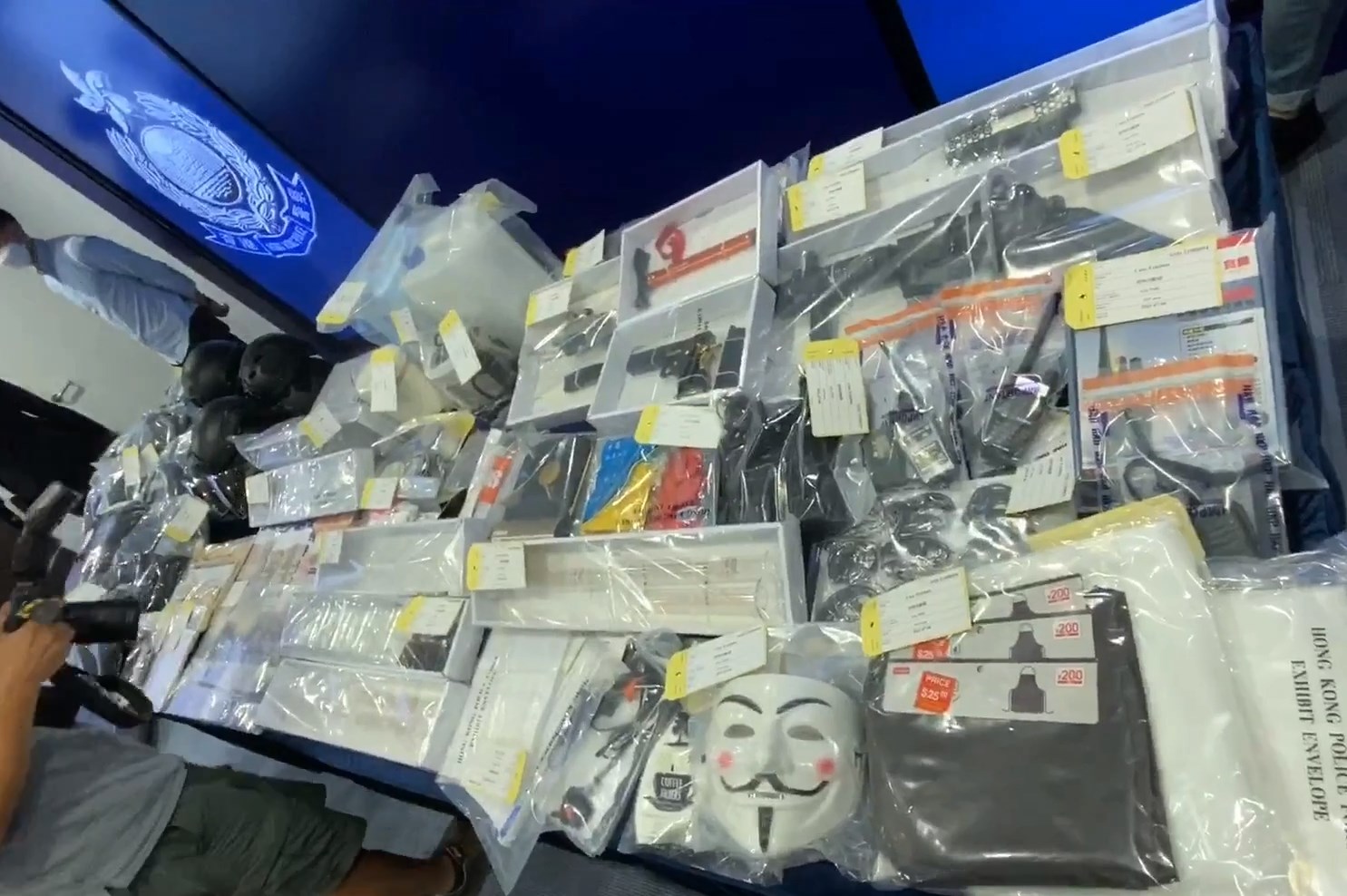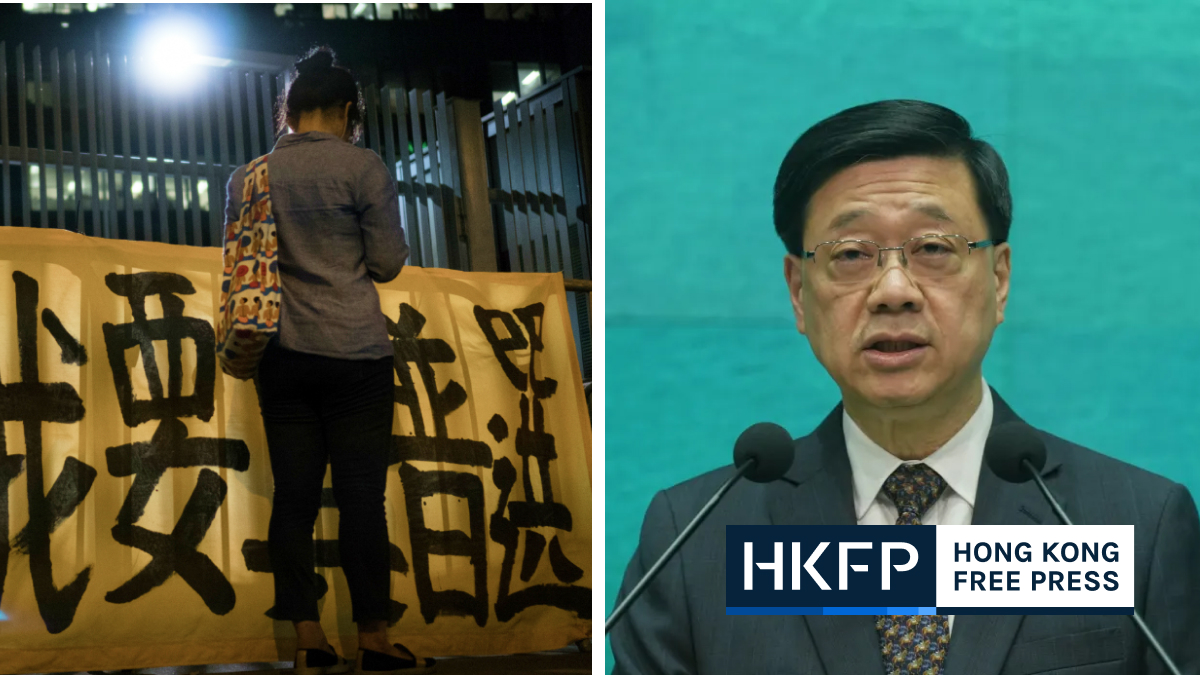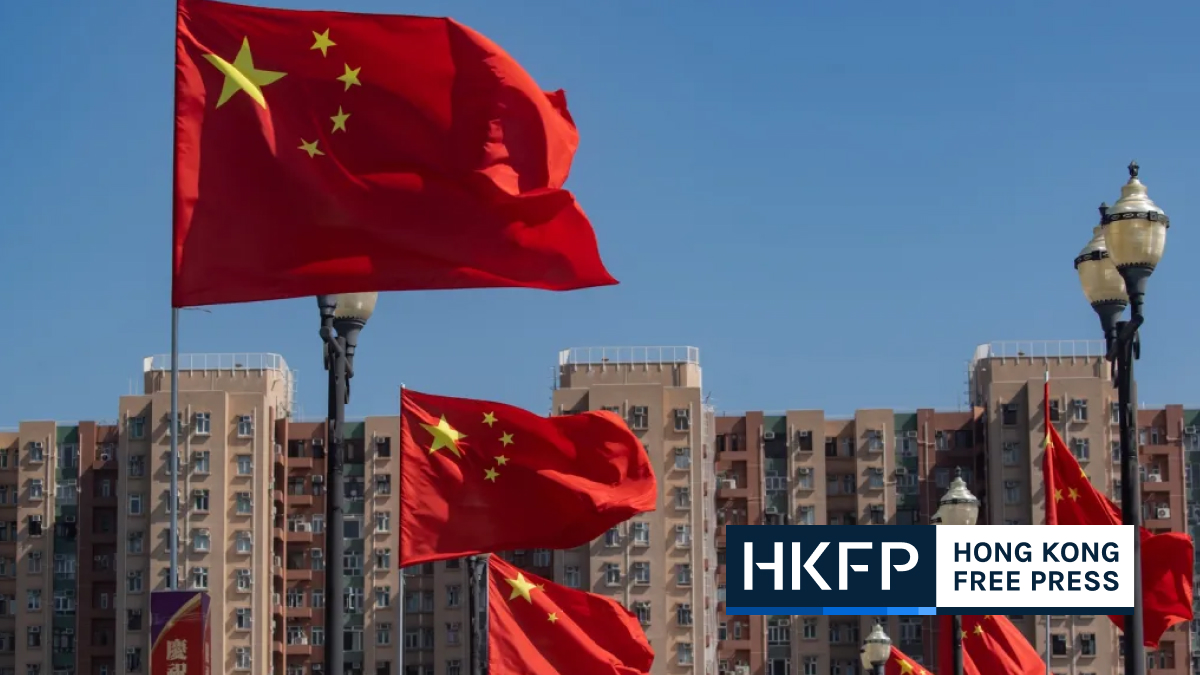Six members of Hong Kong political group Returning Valiant have pleaded guilty to a charge of conspiring to incite subversion. The case marked the first time that minors have pleaded guilty under the national security law – with four of the defendants aged under 18.

Defendants Yuen Ka-him, 17, Wan Chung-wai, 16, Leung Yung-wan, 17, Chris Chan, 26, Tseung Chau Ching-yu, 17 and Kwok Man-hei, 19, pleaded guilty to a charge of conspiracy to incite others to subvert state power at the District Court on Saturday, local media reported.

A seventh defendant, 21-year-old Choi Wing-kit, applied to enter his plea at a later date as he needed more time to review a revised version of the case summary. Designated national security judge Kwok Wai-kin allowed him to do so on September 9.
‘Armed uprising’
Prosecutor Anthony Chau said Returning Valiant – a pro-independence and self-proclaimed revolutionary group – was founded by Choi. Choi and Yuen, a student, were the group’s spokespeople, while others were members.
The seven were accused of organising street booths and press conferences, as well as using social media, to spread seditious messages and incite others to subvert state power between January and May last year.
The group stressed the importance of an “armed uprising” during their news conferences or social media livestreams, the prosecution said, according to local media. Chau said the group had referenced the revolutions in France and Ukraine in their promotional materials.
Members had also cited a speech by the late Chinese leader Mao Zedong, in which Mao said “[R]evolution is a riot, a violent act of one class overthrowing another,” Chau added.
Similar content was found on Returning Valiant’s social media page, with a hashtag saying “it is our mission to liberate our city.”
The prosecution also cited other social media posts by the group, which said that Returning Valiant was made up of “tinder of revolution.” Some posts also laid out “the blueprint of subverting the government,” the prosecution said, according to local media reports.
According to the chat history recovered from one of the activists phones when they were arrested, one of the group’s members had said “there’s no law and order now, only tyranny left, so we must restore the law and order that belonged to us.”

The case summary also alleged that the pro-independence group rented an industrial unit in Cheung Sha Wan, where police found flags, promotion leaflets and weapons, including air guns, magazines, ammunition and batons.
At least 14 members of the Returning Valiant have been arrested or charged under the national security law since May last year. Five were apprehended on suspicion of the burglary of a secondary school in Tseung Kwan O and for being in possession of signs calling for Hong Kong independence.
In July last year, national security police arrested nine suspects from the same group on suspicion of planning “terrorist acts.” Police raided a hostel in Tsim Sha Tsui, where they found a small quantity of explosives and raw materials for making triacetone triperoxide, a highly unstable explosive.
In June 2020, Beijing inserted national security legislation directly into Hong Kong’s mini-constitution – bypassing the local legislature – following a year of pro-democracy protests and unrest. It criminalised subversion, secession, collusion with foreign forces and terrorist acts, which were broadly defined to include disruption to transport and other infrastructure. The move gave police sweeping new powers, alarming democrats, civil society groups and trade partners, as such laws have been used broadly to silence and punish dissidents in China. However, the authorities say it has restored stability and peace to the city.
Reports sought
Judge Kwok on Saturday ordered reports for the defendants who pleaded guilty – to see whether alternatives such as community service order, rehabilitation centre or training centre would be suitable, before considering their sentences. Their sentencing will be handled on September 9, when Choi is set to enter his plea.
The maximum sentence that can be handed down at the District Court is seven years in prison. Under the Juvenile Offenders Ordinance, defendants aged 14 to 15 should not be given prison sentences if they can be dealt with in any other way. However, this may be superseded by the national security law, which stipulates that offenders may be handed up to 10 years of jail time for serious offences.
Student Tseung Chau, who was earlier granted bail, had his bail extended awaiting sentencing. The others continue to be remanded.
Support HKFP | Policies & Ethics | Error/typo? | Contact Us | Newsletter | Transparency & Annual Report | Apps
Help safeguard press freedom & keep HKFP free for all readers by supporting our team
























